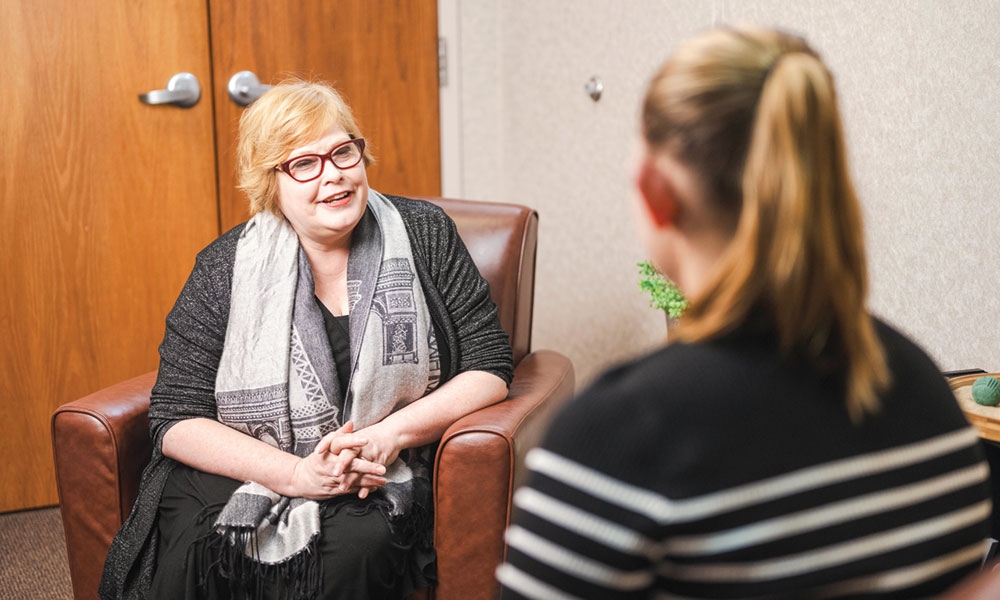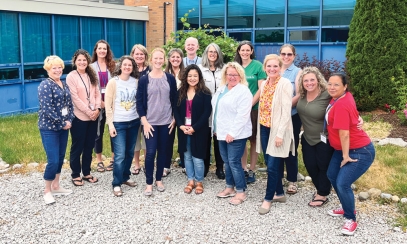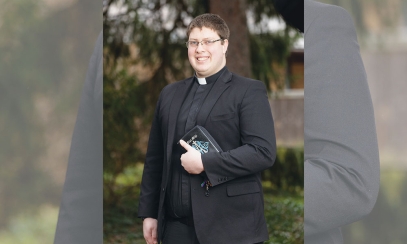
When Talking to a Friend isn't Enough
Thirty years ago, Heidi Ahlbaum was a mother to two boys newly adopted from foster care. She knew they might need help dealing with things they’d experienced in their previous family.
Thirty years ago, Heidi Ahlbaum was a mother to two boys newly adopted from foster care. She knew they might need help dealing with things they’d experienced in their previous family.
Thankfully, Catholic Charities of Jackson, Lenawee and Hillsdale Counties (CCJLH) offered play-based therapy for children in Jackson. She began taking the boys once a week and worked with a counselor for herself simultaneously. The counselor encouraged her to reach out to a doctor to help with her depression.
“They were the first to help me with that,” she says.
Ahlbaum, who lives in the town of Horton south of Jackson, is one of many people in the Diocese of Lansing who has benefited from the counseling and therapy services provided by CCJLH.
The organization provides more than standard counseling services. It offers help for substance use disorder, learning disabilities, PTSD, behavioral issues and anxiety, among other things. Its ADAM (Another Day, Another Memory) group has offered free grief support to the community since 2009.
Lisa Veenstra, director of outpatient counseling for CCJLH, says therapy services may sound unnecessary or scary, but they shouldn't be.
“Counseling is really just talking to somebody about your struggles and being provided tools to help you grow and feel better,” she says. “It doesn’t change you — it gives you new ideas.”
Ahlbaum agrees, adding that while it is always good to have friends to talk to, it is important to recognize that we sometimes need more help than a friend can give us.
“We just need someone that’s on the outside to help us look at things to guide us in making decisions and come up with things we haven’t thought of,” she says. “A friend can do that sometimes, but sometimes you need more than a friend.”
A handful of years ago, decades after Ahlbaum first attended the play therapy sessions with her sons, she was attending a Mass at St. Anthony of Padua in Hillsdale when the pastor mentioned that parishioners would soon have access to a counselor who was set to work out of the church. As a bonus, the counselor was also Catholic.
“I was struggling with some things at the time, and I thought, ‘This is not a coincidence that God has me at this church at this time,’” she says.
Ahlbaum met with that counselor until she married and moved away. Since then, Ahlbaum has met with another Catholic counselor through CCJLH.
“It has helped me through some really rough times over the last several years,” she says. “I’m very glad that Catholic Charities was there.”
Not all of the counselors CCJLH employs are Catholic, but some are, like Veenstra. She says it’s important for parishioners to know that they can meet with someone who shares their faith.
“If you have a Catholic therapist, they understand our belief system and about how we look at the world,” Veenstra said. “They understand what kind of family we’re looking to raise. As a Catholic, I do really understand that.”
One of Ahlbaum’s sons, Mark, age 21, also uses CCJLH’s counseling services and said his work with a therapist has helped him in several ways. He started meeting with a counselor while going through a particularly tough time after the deaths of his grandmother and father, which were only a few months apart. He plans to continue using the service to help with his depression.
“I was able to figure out things about myself that I’ve been struggling with and figure out what exactly those things are,” he says. “Through that, I’ve been able to find solutions. I've found ways to either mitigate or lessen their effects.”
He adds that some people may think counseling is “just talking to someone,” but that if you really commit yourself to learning and trying to heal, it's very beneficial.
“If you go there thinking, ‘I really hope this helps, I want to feel better,’ and you actually listen and communicate, you will find results,” he says.
Veenstra says she has seen an increased need for counselors in recent years, especially among children, who are facing a whole new world of bullying because of social media.
CCJHL will work with a client’s insurance, if they have it, and if not, it will seek alternative funding methods to help the client afford the services. Thanks in part to DSA contributions passed from the Diocese of Lansing to each local Catholic Charities agency, the agency has the tools it needs to be effective.
“Having that available is very important, especially with my family trying to pay for four people at one time,” Heidi Ahlbaum says. “We would not be able to do that otherwise.”
Ahlbaum says she hopes others take advantage of the counseling services, especially those with a Catholic counselor, if they are able to, as taking care of oneself goes beyond physical health.
“We’re the whole person,” she says. “We have a body and a soul and a mind.”
LEARN MORE
For a full list of Catholic Charities’ services in Jackson, Lenawee, and Hillsdale counties, visit catholiccharitiesjlhc.org/.



